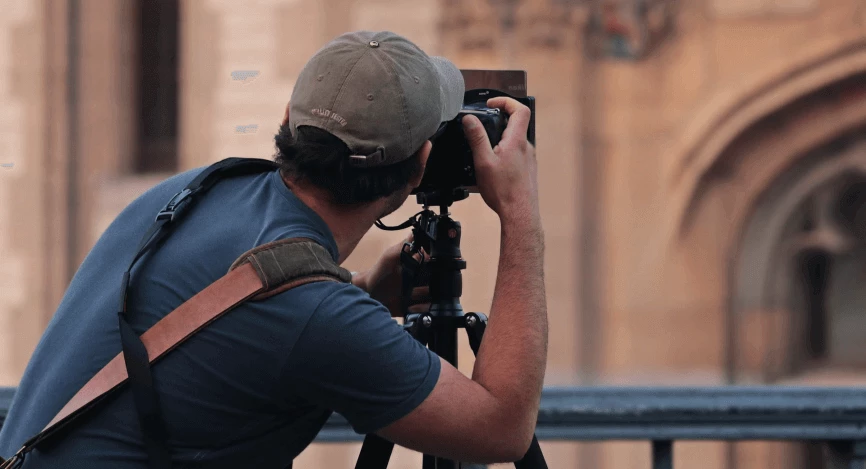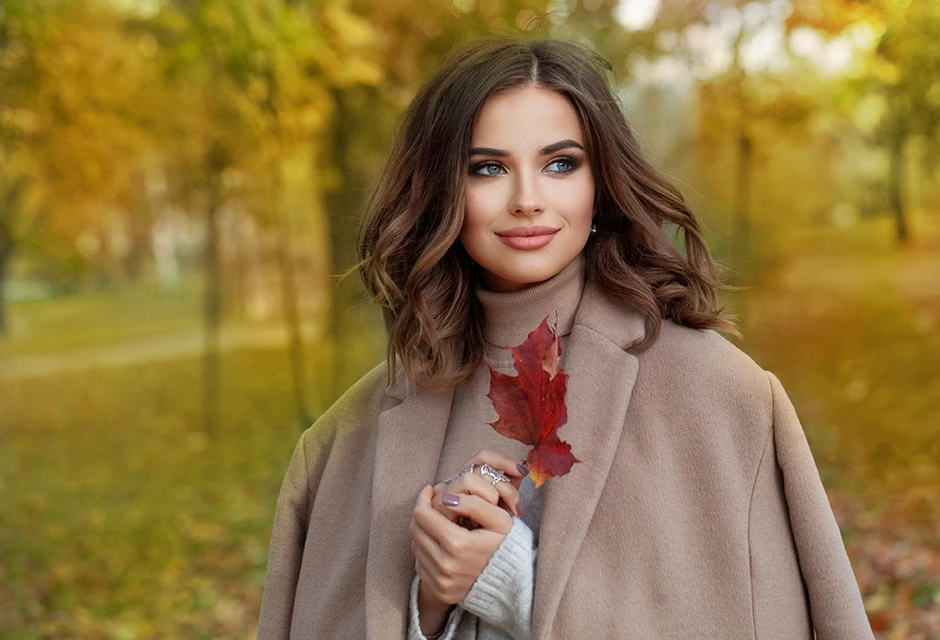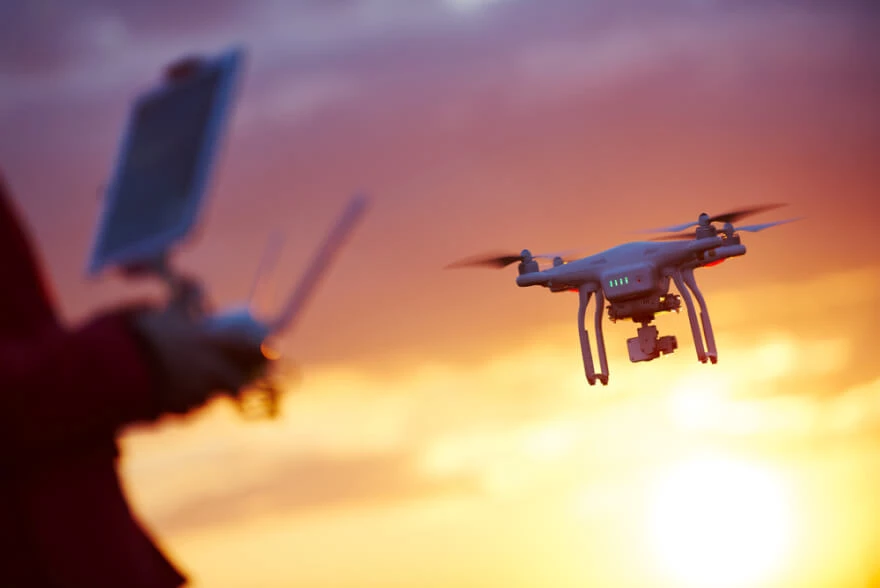5 things to know if you really want to be a photographer

- Who is a photographer?
- Pros and cons of being a photographer
- The skills a photographer needs
- Beginner Photography Courses
- Equipment for the aspiring photographer
Many people wonder how to become a photographer from scratch. In this article, we will try to highlight and go deeper into five nuances that you need to know before entering the profession. We will tell you how to become a successful professional photographer, what directions exist, and what to do for beginners in the profession.
Photography and photo art itself is an excellent choice for those who want to do the job they love, have fun and a lot of money for their work. First, you need to realize that it is possible to become a photographer from scratch on your own. This is completely real, and even if it seems like a daring and bold idea now, it can be achieved in the near future. And for this, you must first of all believe in yourself, visually imagine how to achieve your goal, and strictly tell yourself “I want to be a photographer”. Further, we will delve into the following aspects in more detail: who is a photographer and what he does; the pros and cons of being a photographer; the skills needed by the photographer; where to study as a photographer and how to choose photography courses; equipment that novice photographers will need.
Who is a photographer?
A photographer is not just the owner of a professional camera and a person who knows how to adjust the focus. He is also a virtuoso and a jack of all trades. During photography, photographers sometimes have to transform into producers, props or even psychologists. So what does a photographer do? The photographer creates amazing shots. There is a lot of jobs for photographers, however, it all depends on the type of photographer. And that is why it is necessary to understand these types and spheres of photographers' activity. The world of photography is diverse, and photographers are also different. Professionals choose one area of activity and improve in it. The most popular areas are wedding photography, reportage photography, art photography, food photography, stock photography and other genres. Let's take a look at some of them.
- What does a wedding photographer do.The main task of such photographers is not to miss anything at the main event in the life of the newlyweds. First of all, the bride and groom are filmed, then the guests and all the important moments of the wedding: witnesses, doves, glasses, dances ...
![— Photo №1]()
- What a studio photographer does. These photographers work in specific studio locations that have appropriate interiors. As a rule, such photographers also have a make-up artist who complements the image of the model. Studio photographers shoot in the scenery, and everyone who the model takes with him participates in the photo session.
- What a reportage photographer does. We usually see the result of the job done by reporters in newspapers, magazines, and on websites. They are always in the center of events and take pictures of what is happening around. Their main goal, like a wedding photographer, is to capture important moments.
- What stock photographers do. If you can work as a reportage photographer completely for yourself, a stock photographer in its turn works only for advertising and magazines. An integral part of his activity is photo processing, since for the final result a lot has to be removed from the frame or, conversely, added to it.
- What art photographers do. Special photographers who find beauty in unexpected subjects. Surely many have heard of street art or body art, when the subject of a photograph is a street or a painted person. You have to be born an art photographer, because a person with a standard mindset will not see beauty in everyday things.
- What does an animal photographer do? The task of such a photographer is to hunt animals not for the sake of killing, but for the sake of beautiful frames with squirrels.
![— Photo №2]()
- What food photographers do. Do not rush to scold your friend or your girlfriend if you notice that she is taking pictures of food. Perhaps she has a talent for food photography. They shoot everything that is beautifully on the plate and create their masterpiece out of it.
Pros and cons of being a photographer
Weighing the pros and cons is what you need to do before choosing a photography profession to see if you really want to. The main advantage of working as a photographer can rightfully be considered the work schedule. Working as a photographer means being a freelancer. You can independently choose the days when you can go to work, if there is no connection to the employer. It depends only on you whether you take up the order or not. The next plus is money paid for the job. Professional photographers make pretty good money for one shot. Since there can be several filming per day, income increases significantly in proportion to your working capacity. But the main advantage of working as a photographer is a huge scope for creativity. The professional himself chooses which angle seems more successful and good to him, how to process the photo later. There are no strict instructions and rules: everyone does as he wants, regardless of standards and social attitudes.

If we talk about the minuses, then they are considered to be the following. The first is competition. Every second person considers himself a photographer. Not all clients see the difference between a professional and an amateur, so they often go to the latter, preferring value to quality. You need to be able to advertise yourself in order to receive new orders. Next comes the fickle earnings. If one week is full, then the next one can be spent without work. Expensive equipment is also important. To become a professional photographer, you need equipment. It is expensive, so you have to spend money. But the main disadvantage of that job, considered by many, is the fact that the photographer may not meet the expectations of the client. Working as a photographer means interacting with real people, which is difficult. You need to be able to please the client, but this does not always work out, because the image that one sees in the head may not be realized by the work of the second, and vice versa.
The skills a photographer needs
So what should a real photographer be able to do and what does it take to be a photographer? Take pictures with any camera, phone or tablet. Excellent understanding of the technical characteristics of each device capable of producing images. Always be ready to create a brilliant shot with any plastic nonsense that your friends will put into your hands with a request: "Take a picture of us!" Always ready to shoot, like a samurai, always ready for battle. For this reason, never be apart with a weapon (camera), even in a dream, on vacation or on a holiday. Come to a holiday with a great desire to work, otherwise who, besides you, can beautifully capture the atmosphere of the event. It doesn't matter that you are also invited as a guest: you will have time to eat, drink and chat later. Be a Photoshop guru. Remember by heart the location and function of all buttons in order, on occasion, to prompt and give advice on Photoshop to all friends and acquaintances. Process photos of friends and acquaintances, change the shape of noses, remove shadows, cut off unnecessary people, make a “beautiful” crooked photo tinted with acid filters. Do charity work around the clock. To shoot everything and for everyone, either just for the sake of participation, or for the sake of a mythical advertisement of their work, which will be surely appreciated by mythical potential clients and the next day they will line up for a photo shoot. Understand all models of modern and non-modern cameras. Be ready, at any time, to give prompt advice on choosing a camera in a store. Immediately after the shooting, give all the participants 1-2 processed photos so that they have something to put on their avatar.

Beginner Photography Courses
There are many steps to becoming a photographer but the main and first step should be learning. It is important to receive first skills. In major cities, there are plenty of places for photographers to unleash their potential and learn how to photograph from scratch. There are courses: for beginner photographers, for improving photography skills in a particular field, for advanced training. When choosing courses, first of all, you need to pay attention to the specialization of the photography school. Choose the direction in which you would like to develop. Then look at the work of students who have already graduated. Every school must have such a gallery of pictures. Read reviews about the photo school on social networks. Study the portfolio of your future teacher, since it is his experience that you will learn from. The work of the mentor should be liked. If you are a beginner, the courses will teach you: basic camera settings; working with light and creating a composition (how to focus on an object, how not to fill up the horizon line, how to make a photo bright); competent photo processing; filming on location and in the studio.
If you already have experience in professional photography and you want to improve your qualifications, then the courses will tell you: how to work with all types of light; how to use different lighting equipment (softboxes, reflectors, photo umbrellas, sources of different light); what lighting scheme and for what kind of photography is better to choose; on the detailed use of programs for processing photographs.

Master classes for photographers are constantly held in large cities. These are open lessons that can last from one to three days. Professionals will tell you in a short time what usually is taught in regular courses for several weeks. This type of training is considered better than any other. However, sometimes you have to wait for the lessons for several months. When studying the art of photography, it is important to remember that education is primary, equipment is secondary. As the saying goes, "spend money on experiences / experiences, not things." Scientific research supports this statement. The fact is that even a fleeting experience will remain part of the personality, and not just an object that you own. Not only is this great advice for life, it's also a totally underrated recommendation for photographers. Choosing between a brand new camera or lens and a workshop or a trip to an amazing place, most beginners will give preference to equipment. Don't make this mistake. Attend good workshops or take photo tours in unfamiliar places. The Canon EOS-1D X won't do any good if you don't know how to use it unless you have something in your yard that needs to be photographed at 14 frames per second. Spend money on education, gain experience, forget about the camera for a while.
Equipment for the aspiring photographer
So you've decided to become a photographer and, in shorts, understand what to do to become a photographer. Now you need to understand what, in addition to your own talent, this will require. Which camera to choose - a DSLR or a mirrorless - it's up to you. There is a lot of controversy on this score, since both have their own disadvantages and advantages.
If we talk about a SLR camera, its advantages are: a battery that can work for a long time without recharging; large selection of lenses; well, of course, the speed of work (switching on, focusing, additional functions - everything happens pretty quickly). The disadvantages of a DSLR camera are considered to be the following: their weight, they are usually large and heavy; the cost of such equipment is quite high; difficult to use in the dark - nothing is visible in the optical viewfinder (the device which determines the frame).
A mirrorless digital camera is a compact and lightweight device that costs several times less than a DSLR and has fast autofocus in any shooting mode. But its battery lasts for 200 - 250 frames, it works rather slowly and has a limited number of additional lenses. A good shot can be taken with any camera, if you have straight arms, but once at a time it is not necessary. Professionals still prefer DSLRs, but things can change quickly, because progress does not stand still. In general, the set of the photographer is not that large and includes a camera (it is better to get a good camera), a memory card (if not included in the kit) - at least 16 GB, since the photos will be "heavy", a computer - any that supports good programs to process photos.

What else can a novice photographer need? The equipment may differ depending on the type of shooting, but the following can be considered basic and necessary: flash - for shooting in dark rooms or in the evening; lenses - for versatile shooting; charging blocks - allow you to connect several batteries at once; tripod - necessary for accurate shots; additional memory cards - if the main one runs out; backpack - somewhere you need to carry all this; and, of course, strong muscles - to carry a backpack with photo gadgets with you. A studio photographer will also need: studio space - or an agreement with good studios, where there are several interiors or halls; decorations (several backgrounds or a furnished interior); lighting equipment.
So these were five main things that give a tip of how to get started as a photographer yourself. The history of each photographer is individual, and not all professionals attended the courses. With a certain amount of diligence and patience, you can become a photographer without any help. Be prepared this can take years. You will have to search and correct mistakes in your work yourself.

Here are some more tips if you want to know how to be a photographer. Buying a camera that is too expensive is not worth it, because first you need to fill your hand. Get yourself any DSLR. Now there is also mobile photography, when all shots are taken on a phone (provided a good camera on a smartphone). Ask your friends to point out to you the shortcomings and constantly improve, take pictures. Correct mistakes and take photos again. You will need time to learn how to take photos and process them well. What a photographer should be able to do - work moments that everyone knows about, but rarely takes into account. Correct attitude to equipment. Professionals respect their tool, they are well aware of its strengths and weaknesses, methods of improving work. There is no need to immediately pounce on interesting novelties, it is better to purchase one high-quality item and adapt to its features than to constantly change cameras. A real photographer is afraid to miss a good shot, so he always takes a camera with him. The presence of the instrument should not be idle, it should be used even if there are no outstanding views or interesting objects around. What a photographer should be able to do in addition to working with technology. Seeing things in a new way. A specialist who decomposes the seen picture into its components, thinks over the features of shooting while watching a film, will achieve more success than one who is easily distracted from his activities. Change your schedule and daily life. A photographer's working day begins early in the morning, ends late at night, and implies urgent trips and unplanned travels in pursuit of a good shot. Even an amateur should prepare for the fact that life with photography will completely change. Decide what kind of photographer you want to become, acquire the necessary equipment, sign up for courses and ... go to your dream! Over time, you will learn how to easily create masterpieces with just one tap of your finger.
Co-founder of RetouchMe. In addition to business, he is passionate about travel photography and videography. His photos can be viewed on Instagram (over 1 million followers), and his films can be found on his YouTube channel.
Moreover, his profile is featured on the most popular and authoritative resource in the film industry — IMDb. He has received 51 international awards and 18 nominations at film festivals worldwide.

with RetouchMe
















